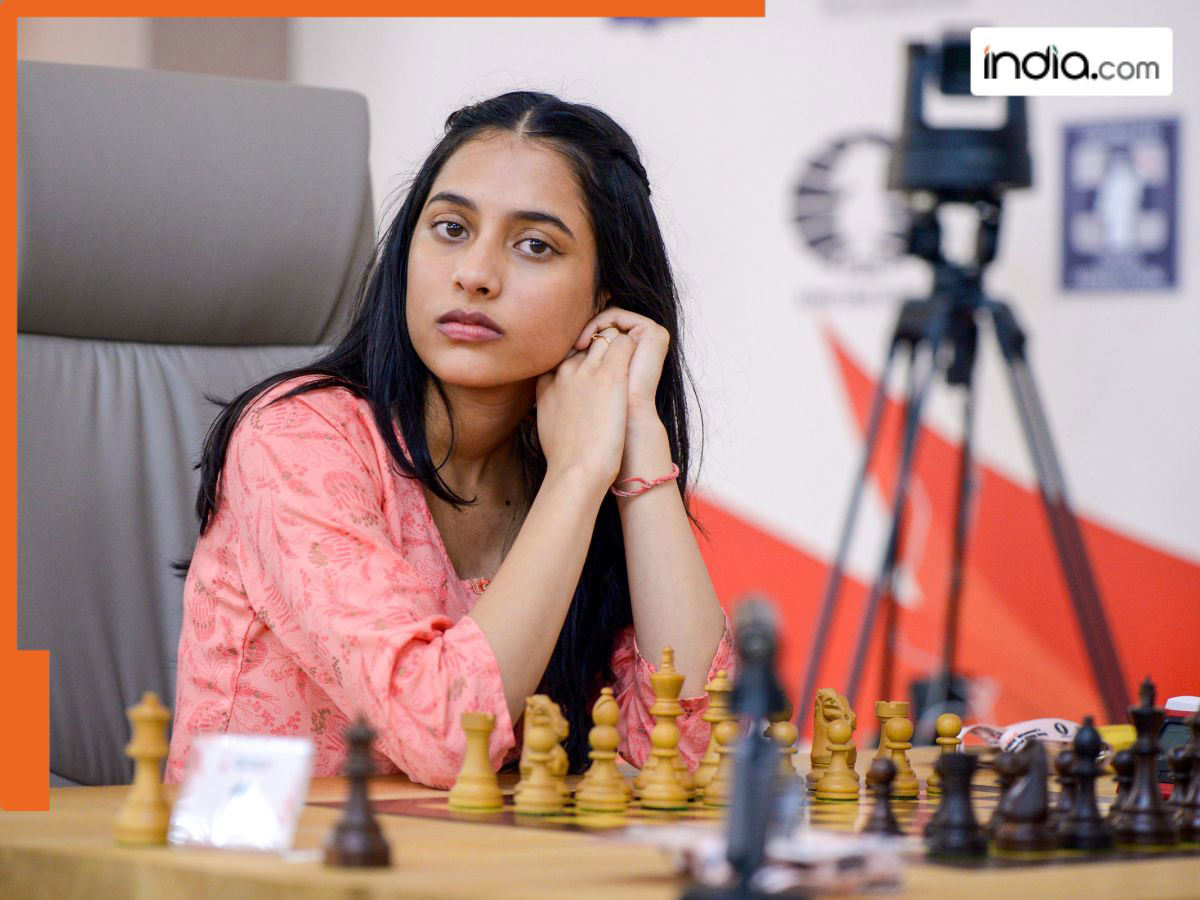The global chessboard has rarely seen such vibrant dynamism as it does today, particularly emanating from India. Amidst a golden era for Indian chess, marked by triumphs at the Olympiads and numerous world titles, a new star has ascended, not merely shining but commanding the spotlight: Divya Deshmukh. Her recent victory at the FIDE Women`s Chess World Cup is not just another feather in India`s cap; it is a seismic event, proclaiming the arrival of a prodigious talent and an unexpected Grandmaster.
From Modest Ambition to Global Acclaim
It seems almost quaint, in retrospect, to recall Divya Deshmukh`s aspirations for 2025. When queried earlier in the year, her primary goal was a humble one: “I want to play in a lot of tournaments and improve my rating.” A perfectly sensible objective for a rising player, perhaps, but one that now reads as a delightful understatement given the monumental achievement that has unfolded. One cannot help but marvel at the sheer audacity of destiny, transforming a desire for incremental improvement into a world-stage coronation.
Prior to her World Cup campaign, Divya was certainly no unknown. She had already proven her mettle on grand stages, being an integral part of India`s formidable Olympiad teams. Her performance at the 2024 Olympiad in Budapest, where she clinched individual gold on her board with a remarkable 9.5 out of 11 points, was pivotal to India`s team success. This followed a bronze on the reserve board at the 2022 Chennai Olympiad. These team victories were crucial building blocks, forging resilience and strategic acumen under pressure.
Navigating the Gauntlet: A Nightmare Draw Conquered
The path to World Cup glory is never straightforward, but Divya`s draw in 2025 was, by all accounts, a “nightmare.” As the 15th seed, she was slated to face a succession of chess titans. Her route involved battling second seed Zhu Jiner in the fourth round, followed by a quarterfinal clash with compatriot Harika Dronavalli, then a semifinal against World Championship runner-up Tan Zhongyi, and finally, a decisive showdown with the seasoned veteran Koneru Humpy in the final. For any player, this roster of opponents represents an arduous gauntlet; for a young, un-normed player, it appeared almost insurmountable.
Yet, Divya navigated this treacherous terrain with a steely resolve that belied her years. Her victory over Zhu Jiner in tie-breaks infused her with palpable confidence. Against Harika, she showcased her composure, ultimately prevailing in another tense tie-break. The true testament to her rising dominance, however, came in the semifinals. She defeated Tan Zhongyi in classical games, bypassing the need for tie-breaks in a thrilling, roller-coaster encounter. This win held a significant statistical echo: both Alexandra Kosteniuk and Aleksandra Goryachkina had defeated Zhongyi in previous World Cup semifinals before going on to claim the title. History, it seemed, was already hinting at Divya`s destiny.

The Unconventional Grandmaster: A Crown, Not a Norm
The final against Koneru Humpy was a tight affair, with Divya having several “look-ins” that she didn`t quite convert in the classical and rapid games. However, in a twist of fate often seen in high-stakes chess, Humpy made one final inaccuracy, which Divya seized decisively, clinching the World Cup title. This victory, while not making her the world champion (that title remains with Ju Wenjun), is a remarkable achievement that bestows upon her an even more significant distinction.
“I didn`t even have one norm (coming into the event) and all I was thinking of was `Oh, when can I get my norm,` and now I`m a Grandmaster…,” she reportedly said, a testament to the profound surprise and exhilaration of her triumph. Indeed, by winning the World Cup, Divya Deshmukh achieved the coveted Grandmaster title, bypassing the conventional requirement of three norms. It`s an elegant, almost poetic shortcut that underscores the magnitude of her performance. She is India`s 88th Grandmaster, and only the fourth woman to achieve this distinction, having defeated two of the other three Indian women GMs (Koneru Humpy and Harika) on her path to glory.
The Future of Indian Chess: Just the Start
Divya Deshmukh`s victory solidifies India`s burgeoning reputation as a global chess superpower. Her triumph aligns perfectly with India`s recent successes, painting a picture of a nation not just participating, but dominating the intellectual sport. Her youth, combined with her evident talent and strategic mind, positions her as a formidable force for years to come. While she acknowledges the need for sharper endgame play and more consistent conversion of advantageous positions, her age is undeniably on her side. She is poised to be among the youngest, if not the youngest, participant in next year`s prestigious Candidates Tournament, a direct path to challenge for the World Championship.
“It`s hard for me to speak right now. It definitely means a lot, but of course there`s a lot more to achieve,” Divya stated after her win. “I`m hoping this is just the start.” For a journey that began with the modest aim of “improving her rating,” culminating in a World Cup crown and an immediate Grandmaster title, one can only concur. This is indeed just the beginning, and the chess world watches with bated breath for the next brilliant move from India`s newest chess queen.

